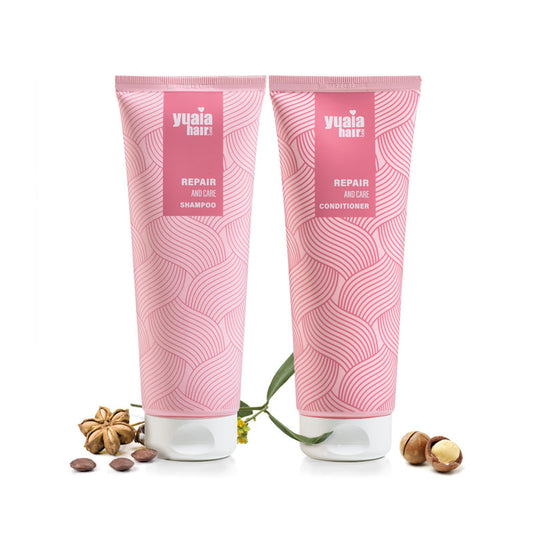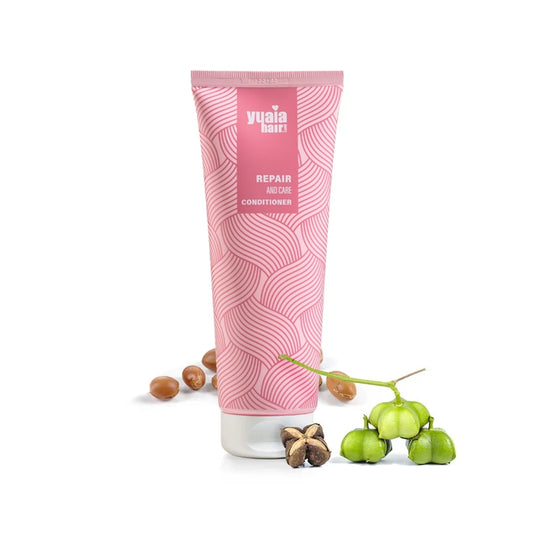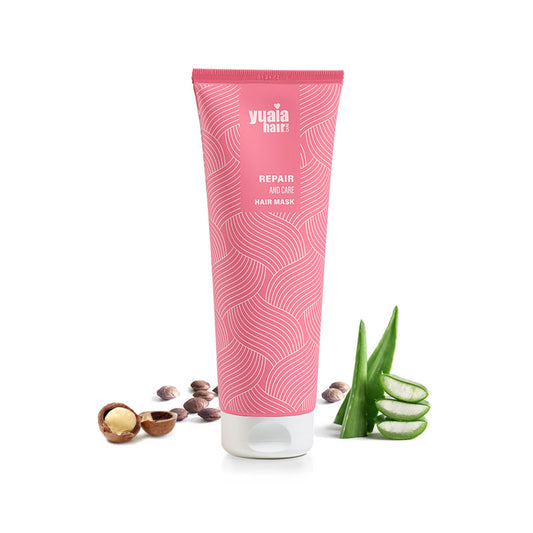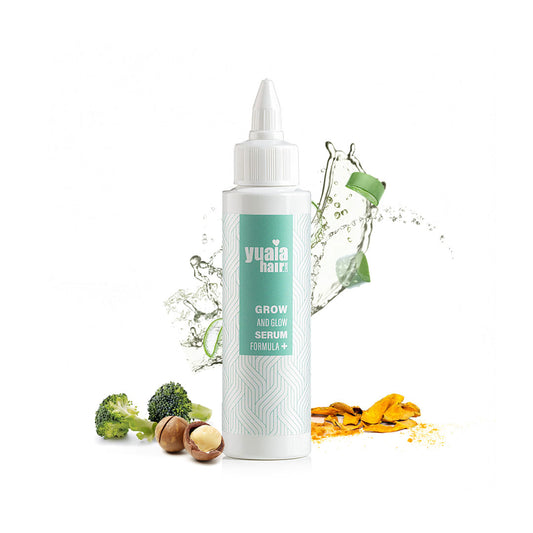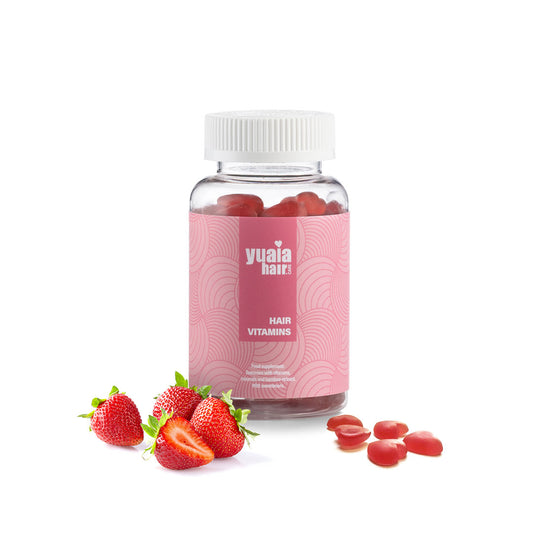
Silk amino acids – Nature’s moisturizer
Derived from the cocoon of the silkworm, silk amino acids are prized for their deep moisturizing and conditioning properties. These amino acids, such as serine and glycine, have a low molecular weight that allows them to penetrate the hair shaft and help retain internal moisture.
By forming a protective barrier around each strand, silk amino acids reduce dryness, enhance shine, and improve the hair’s softness and elasticity. The result is smoother, healthier hair that is easier to manage and less prone to damage. Hair care products enriched with silk amino acids are especially beneficial for those dealing with frizz, dullness, or damage from heat styling and chemical treatments.
Keratin amino acids – Restoring hair’s strength
Keratin treatments often contain amino acids that mimic the natural proteins found in the hair. These amino acids repair structural damage by filling in weak areas along the cuticle, thereby reinforcing the hair's natural resilience.
Regular use of keratin amino acid treatments can significantly reduce split ends, improve manageability, and restore a glossy appearance to hair that has been over-processed or exposed to harsh environmental factors. They are particularly effective for chemically treated, color-damaged, or coarse hair types.
What are the benefits of amino acids for hair?
Amino acids offer a wide range of benefits for hair health by supporting its strength, growth, hydration, and resilience. Their presence in both internal nutrition and topical treatments ensures that hair receives the necessary building blocks to maintain vitality and structure.
Strengthening hair structure
Amino acids such as cysteine and methionine are essential for the formation of keratin—the primary structural protein in hair. They help reinforce the internal bonds within the hair shaft, reducing breakage and split ends. This enhances the hair’s resistance to mechanical stress from brushing, styling, and daily wear. Ensuring an adequate supply of these amino acids, either through diet or topical hair care products, can significantly improve hair health, appearance, and long-term strength.
Supporting healthy hair growth
Optimal hair growth depends on a steady supply of nutrients, with amino acids like arginine and lysine playing key roles. Arginine enhances blood circulation in the scalp, improving the delivery of oxygen and nutrients to hair follicles. Lysine supports better absorption of essential minerals such as iron and zinc, which are crucial for maintaining normal hair. Together, these amino acids create favorable conditions for stronger, thicker, and more resilient hair growth over time.
Enhancing moisture retention
Silk amino acids such as serine and glycine play a vital role in maintaining the hair’s moisture balance. Acting as natural humectants, they attract and retain moisture within the hair shaft. This is especially beneficial for dry or chemically treated hair, as it helps improve hydration levels, reduce dryness, and prevent brittleness. The result is softer, smoother, and more manageable hair that feels healthier and is easier to style. With regular use of products containing these amino acids, hair can achieve noticeably improved texture and enhanced elasticity.
Reducing frizz and improving texture
Amino acids play a key role in smoothing the hair’s outer layer, helping to reduce frizz and create a sleeker, more polished appearance. They smooth the cuticle layer of each strand, resulting in softer texture and improved manageability. This benefit is especially noticeable in individuals with damaged or chemically treated hair, where amino acids help restore structure and control. With regular use, hair becomes shinier, less prone to frizz, and easier to style, making the overall finish appear healthier and more refined.
Protecting against environmental stress
Amino acids help protect the hair by reinforcing its natural barrier, making it more resilient to environmental stressors such as heat styling, UV exposure, and pollution. This protective effect is essential for maintaining healthy hair, even under challenging conditions. Regular use of hair care products containing amino acids can improve the hair’s ability to withstand daily damage and dryness, preserving its strength, moisture, and overall vitality.
Amino acids for hair growth
Several amino acids are directly involved in stimulating hair growth, each contributing uniquely to the development and maintenance of healthy hair. Among them, cysteine is particularly significant due to its sulfur content, which enables the formation of disulfide bonds—structures that lend hair its strength, resilience, and natural shape. Methionine, another sulfur-rich amino acid, not only supports keratin and collagen synthesis but also promotes blood flow to the scalp, ensuring that hair follicles receive the oxygen and nutrients needed for growth and regeneration.
Arginine also helps by enhancing blood circulation throughout the scalp, further improving the delivery of vital nutrients to the hair roots. Additionally, lysine supports the body's ability to absorb iron and zinc, two minerals that are important for maintaining normal hair.
When these amino acids are present in sufficient quantities, whether through diet or targeted hair treatments, they help to create an optimal environment for hair to grow stronger, thicker, and healthier. Their synergistic effects ensure that the scalp remains well-nourished and that the hair strands are fortified from within, making amino acids an essential component of any effective hair care regimen aimed at growth and restoration.
How to use amino acids in your haircare routine
Amino acids play a key role in maintaining healthy hair and can be incorporated into your haircare routine both internally and externally. From a nutritional standpoint, consuming protein-rich foods such as eggs, fish, legumes, and nuts ensures a steady supply of essential amino acids that support the synthesis of keratin—the main structural protein in hair.
Externally, look for shampoos, conditioners, and serums formulated with specific amino acids like cysteine, serine, and arginine. These ingredients help reinforce the hair structure, enhance moisture retention, and reduce damage from heat and chemical treatments.
Additionally, many professional salons offer treatments focused on amino acid repair, providing intensive nourishment and visible improvements, especially for severely damaged hair or chemically treated hair.
The lasting benefits of amino acids for hair health
Amino acids play an important role in supporting healthier, stronger hair. Whether derived from dietary sources, silk proteins, or targeted treatments, these compounds work at the molecular level to reinforce the integrity of each strand. By integrating amino acid-rich solutions into your routine, you can not only restore damaged hair but also support sustained growth and resilience for the future.
Frequently Asked Questions
What are amino acids and why are they important for hair?
Amino acids are the building blocks of proteins, such as keratin, which make up the majority of the hair shaft. They are essential for maintaining hair strength, elasticity, and overall health by supporting the structure and resilience of each strand.
Which amino acids are most beneficial for hair growth?
Cysteine, methionine, arginine, and lysine are particularly beneficial for hair growth. They help form strong protein bonds, improve blood circulation to the scalp, and support the absorption of essential minerals needed for healthy hair development.
How can I add amino acids to my haircare routine?
You can boost your amino acid intake through a protein-rich diet including eggs, fish, legumes, and nuts. Additionally, use haircare products like shampoos, conditioners, and treatments that contain amino acids such as cysteine, serine, and arginine for topical benefits.
Are amino acid treatments suitable for all hair types?
Yes, amino acid treatments are generally suitable for all hair types. They are especially beneficial for damaged, chemically treated, or dry hair, as they help restore strength, moisture, and manageability.
Can amino acids help repair damaged hair?
Yes, amino acids can help repair damaged hair by reinforcing the hair’s natural protein structure, improving moisture retention, and reducing breakage and split ends. Regular use of amino acid-rich products can restore shine and resilience to weakened hair.
 2-5 day delivery
2-5 day delivery
 25.000+ satisfied customers
25.000+ satisfied customers
 Satisfaction Guarantee
Satisfaction Guarantee



















